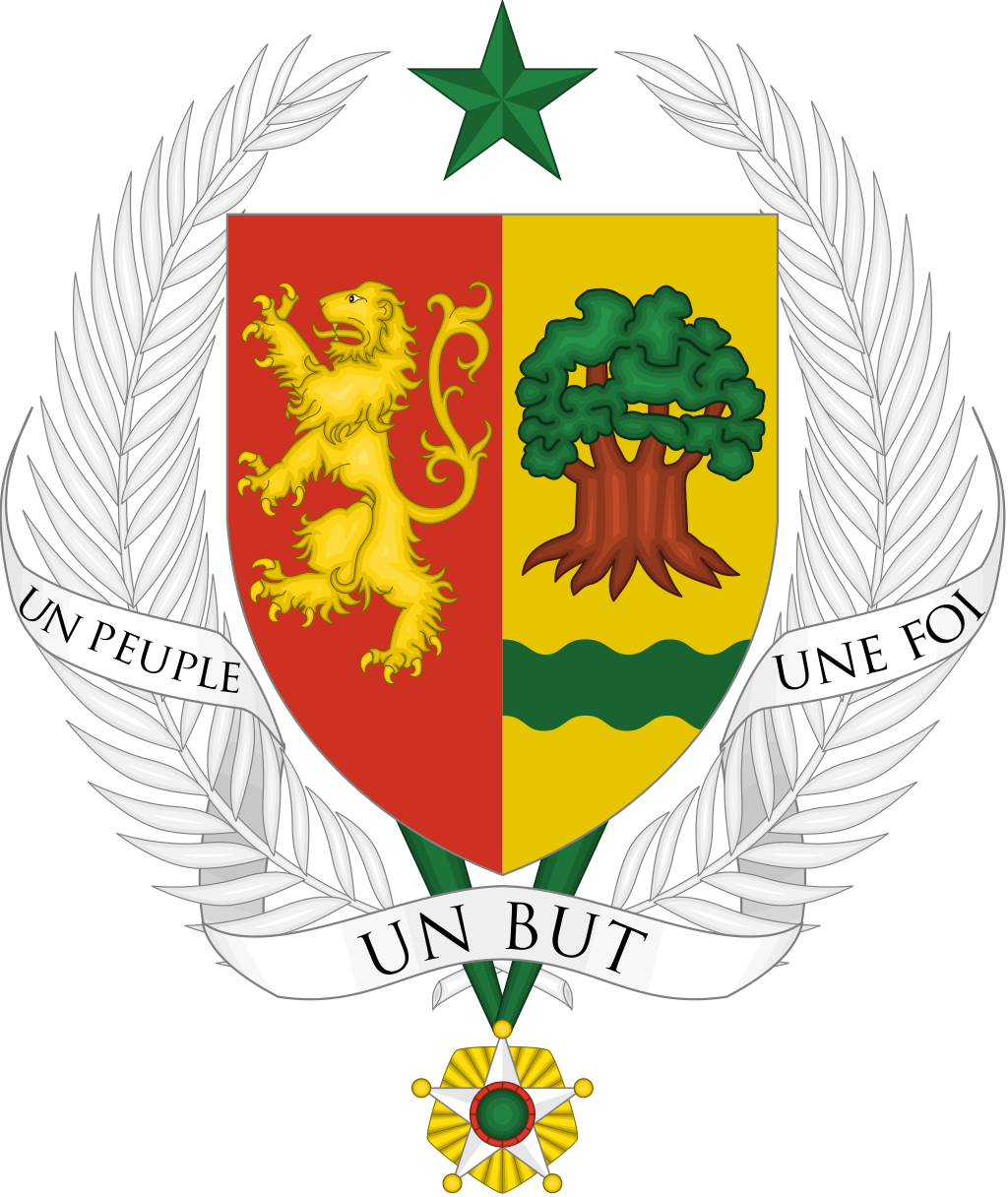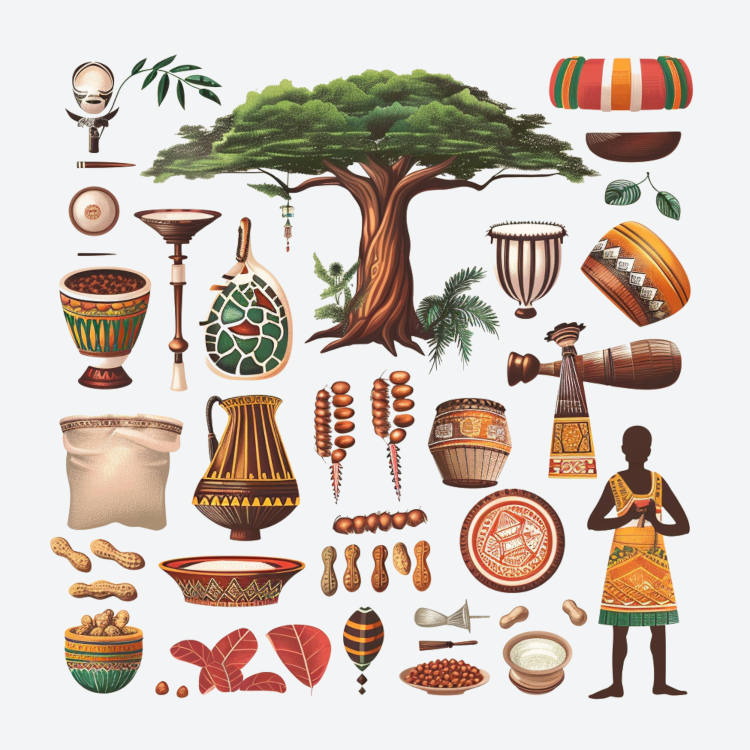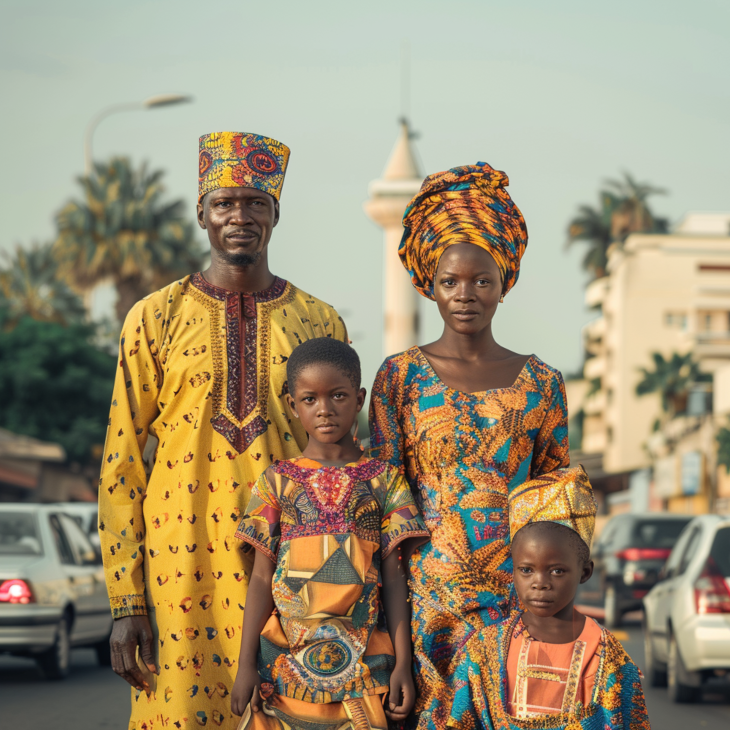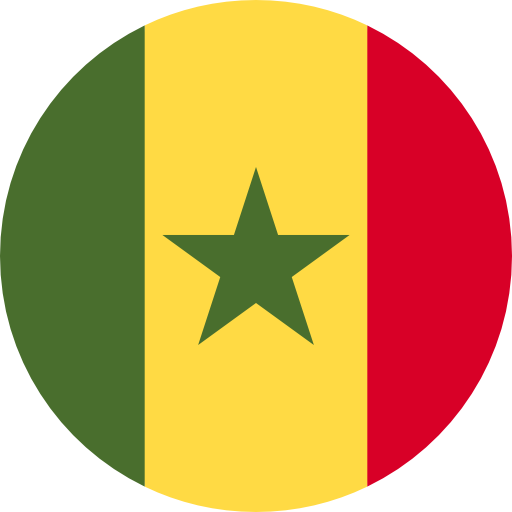About SN

Location
Senegal is located in West Africa, bordered by the Atlantic Ocean to the west, Mauritania to the north and northeast, Mali to the east, and Guinea and Guinea-Bissau to the south.
Capital
The capital city of Senegal is Dakar, which is also the largest city and the country's economic hub.
Population
As of the latest estimates, Senegal has a population of approximately 17 million people, making it one of the most populous countries in West Africa.
Area
Senegal covers an area of about 196,722 square kilometers (75,955 square miles), making it the 87th largest country in the world by land area.
Official Language
The official language of Senegal is French, which is inherited from its colonial past. However, Wolof is widely spoken as a lingua franca, and several other indigenous languages are also spoken throughout the country.
Government
Senegal is a republic with a semi-presidential system of government. The President of Senegal serves as the head of state and head of government, while the Prime Minister is appointed by the President and is responsible for overseeing the day-to-day administration of the government.
Independence
Senegal gained independence from France on April 4, 1960, becoming one of the first countries in West Africa to achieve independence from colonial rule.
Currency
The currency of Senegal is the West African CFA franc (XOF), which is also used by several other countries in the West African Economic and Monetary Union (WAEMU).
Economy
Senegal's economy is diverse, with key sectors including agriculture, fishing, mining, manufacturing, and services. Agriculture is a significant contributor to the economy, employing a large portion of the population and producing crops such as peanuts, millet, maize, and rice. Senegal also has potential in industries such as tourism and renewable energy.
Natural Features
Senegal has a diverse landscape, including coastal plains, savannas, and semi-arid regions. The country is known for its rich biodiversity, national parks, and wildlife reserves. The Saloum Delta and the Djoudj National Bird Sanctuary are UNESCO World Heritage Sites.
Culture
Senegal has a vibrant and diverse cultural scene, influenced by various ethnic groups and traditions. Music, dance, and storytelling play important roles in Senegalese culture, with genres such as Mbalax and Senegalese hip-hop gaining international recognition. Traditional crafts such as weaving, pottery, and basketry are also significant cultural expressions.
Religion
Islam is the predominant religion in Senegal, with the majority of the population adhering to Sunni Islam. However, Senegal is known for its religious tolerance, and other faiths such as Christianity and indigenous African religions are also practiced.
Infrastructure
Senegal has developed infrastructure, particularly in urban areas such as Dakar, where there are modern amenities, transportation networks, and educational institutions. However, access to basic services and infrastructure can vary between urban and rural areas.
International Relations
Senegal is active in international diplomacy and is a member of various international organizations, including the United Nations, the African Union, and the Economic Community of West African States (ECOWAS).
Challenges
Senegal faces challenges such as poverty, unemployment, environmental degradation, and vulnerability to climate change. Efforts are underway to address these challenges through economic development, social programs, and sustainable environmental practices.

National Items of Senegal
Baobab Tree
The Baobab tree is a significant symbol in Senegal, often referred to as the "Tree of Life." It symbolizes resilience, longevity, and the natural beauty of the Senegalese landscape.
Griot
Griots are traditional storytellers, musicians, and historians in Senegal. They symbolize the rich oral tradition, cultural heritage, and historical preservation.
Senegalese Wrestling (Laamb)
Senegalese wrestling is a traditional sport and popular cultural practice. It symbolizes strength, tradition, and national pride.
Dakar
Dakar, the capital city, symbolizes Senegal's political, cultural, and economic heart, as well as its modernity and progress.
Sabar Drums
Sabar drums are traditional percussion instruments used in various ceremonies and celebrations. They symbolize musical heritage, cultural expression, and social traditions.
Thieboudienne
Thieboudienne, a traditional dish made from fish, rice, and vegetables, symbolizes the rich culinary heritage and the blend of various cultural influences in Senegalese cuisine.
Kora
The Kora is a traditional 21-string lute-bridge-harp used extensively in West Africa, especially in Senegal. It symbolizes the rich musical heritage, cultural expression, and traditional artistry.
Gorée Island
Gorée Island is a UNESCO World Heritage site known for its historical significance related to the Atlantic slave trade. It symbolizes historical heritage, cultural significance, and the memory of the past.
Senegalese Textiles (Wax Prints)
Colorful Senegalese textiles, particularly wax prints, symbolize cultural heritage, traditional fashion, and artisanal craftsmanship.
African Renaissance Monument
The African Renaissance Monument in Dakar symbolizes national pride, cultural heritage, and Senegal's vision for progress and development.
Senegalese Tea (Ataya)
Ataya, a traditional tea ceremony, symbolizes hospitality, social customs, and cultural traditions.
Lake Retba (Pink Lake)
Lake Retba, also known as the Pink Lake, symbolizes natural beauty, unique ecological phenomena, and the tourist appeal of Senegal.
Peanut (Groundnut)
Peanuts are a major agricultural product in Senegal, symbolizing agricultural heritage, economic importance, and traditional farming practices.
Senegalese Dance
Traditional Senegalese dances, such as the Youssou Ndour and the mbalax, symbolize rich cultural heritage, artistic expression, and social traditions.
Touba
Touba is a significant religious and cultural center in Senegal, known for its Grand Mosque. It symbolizes religious heritage, cultural identity, and spiritual significance.
Jembe Drum
The Jembe drum, a traditional African drum, symbolizes rich musical heritage, cultural expression, and social traditions.
Senegalese Fabric (Boubou)
The Boubou is a traditional flowing garment worn by both men and women in Senegal. It symbolizes cultural heritage, traditional fashion, and identity.
Senegalese Jewelry
Traditional Senegalese jewelry, often made with gold and other materials, symbolizes rich artisanal heritage, cultural identity, and craftsmanship.

The anthem reflects the pride, unity, and determination of the Senegalese people, as well as their love for their country and its achievements, particularly in the realm of football.
The national anthem of Senegal is called "Pincez Tous vos Koras, Frappez les Balafons" (Pluck Your Koras, Strike the Balafons). Here are the lyrics in the original French language along with an English translation:
Pincez tous vos koras, frappez les balafons.
Le lion rouge a rugi,
Le dompteur de la brousse
D’un bond s’est élancé.
D’un bond s’est élancé.
Le lion rouge a rugi,
Le dompteur de la brousse
D’un bond s’est élancé.
D’un bond s’est élancé.
Attention! Debout!
La patrie nous appelle.
Sachons vaincre ou sachons périr.
Unissons nos voix, à celles des sirènes.
Sachons vaincre ou sachons périr.
Unissons nos voix, à celles des sirènes.
En avant! En avant! En avant! En avant!
Le Sénégal, reine du football,
A ses fiers lions à traversé les mers,
En avant! En avant! En avant! En avant!
Le Sénégal, reine du football,
A ses fiers lions à traversé les mers.
Un soleil nouveau vient de naître
Sur la terre et sur la mer.
Notre drapeau flotte sur l’air,
Pareil au soleil dans son éclat.
Notre drapeau flotte sur l’air,
Pareil au soleil dans son éclat.
Attention! Debout!
La patrie nous appelle.
Sachons vaincre ou sachons périr.
Unissons nos voix, à celles des sirènes.
Sachons vaincre ou sachons périr.
Unissons nos voix, à celles des sirènes.
En avant! En avant! En avant! En avant!
Un soleil nouveau vient de naître
Sur la terre et sur la mer.
Notre drapeau flotte sur l’air,
Pareil au soleil dans son éclat.
Notre drapeau flotte sur l’air,
Pareil au soleil dans son éclat.


